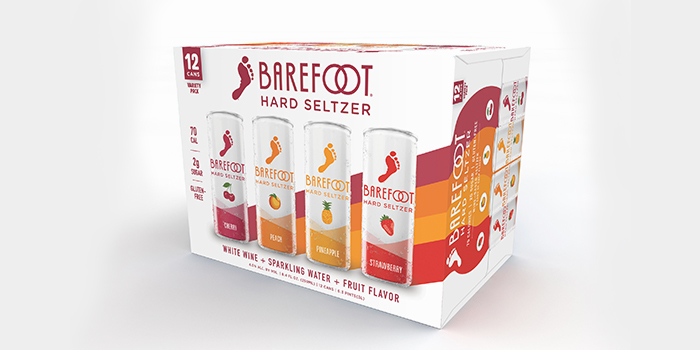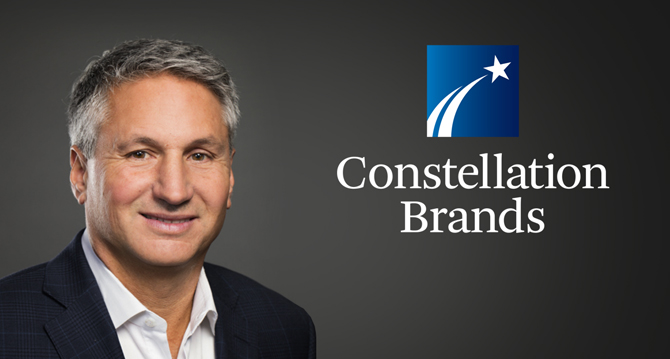
US Beer Companies Ship Nearly 165.5 Million Barrels in 2019
Despite a strong finish to 2019, U.S. brewers shipped nearly 1.4 million fewer barrels of beer in 2019 compared to 2018, according to the Beer Institute (BI), which cited unofficial estimates of domestic tax paid shipments from the Alcohol and Tobacco Tax and Trade Bureau (TTB).
For the full year, U.S. breweries shipped and estimated 165,499,000 barrels of beer, a decline of 0.8% from 2018, when shipments totaled 166,879,555 barrels.
Nevertheless, December marked the strongest month of shipments in 2019, as shipments increased 4.7% compared to 2018.

In the final month of 2019, beer companies shipped about 13.6 million barrels of beer, but it wasn’t enough to make up for seven months of declines in 2019, including steep declines in June (-5.1%) and August (-6.4%).
The first estimates of 2020 are slated to be released on February 27.
In other BI news, the organization released an animated video today in an effort to show why aluminum prices are increasing for beer companies and encourage consumers to contact lawmakers to support the APEX Act, which would provide increased oversight of the aluminum market. Watch it above.

TTB Accepts Offers In Compromise For Trade Practice Violations
The Alcohol and Tobacco Tax and Trade Bureau (TTB) has accepted two offers in compromise from companies accused of tied house violations.
The TTB accepted a $350,000 offer in compromise from Milan, Illinois-based alcoholic beverage wholesaler Stern Beverage Inc. for allegedly violating exclusive outlet and tied house trade practice provisions within the Federal Alcohol Administration Act by providing “things of value” to retailers in exchange for placement of its products at the expense of competing brands dating back to August 7, 2015.
The TTB also accepted a $450,000 offer in compromise from Miami, Florida-based importer and alcoholic beverage wholesaler Carisam for alleged tied-house violation that included providing free installations of Heineken “BrewLock” draft beer systems on various cruise ships docked in port within Florida. Carisam also allegedly made payments to cruise lines on behalf of manufactures in order to secure product or menu placements of the company’s alcoholic beverage products on ships. The TTB said the violations occurred from January 1, 2016, through June 30, 2019.
Recall that in April 2019 Heineken USA agreed to pay a record $2.5 million offer in promise for alleged trade practice violations related to the BrewLock system. Heineken has since discontinued the BrewLock program.

Anheuser-Busch Spends $24 Million on Bud Light Seltzer Ads
Since launching Bud Light Hard Seltzer earlier this month, Anheuser-Busch InBev has spent $24.2 million on advertising for the new product line, according to TVRev.com.
The majority of the investment — $23 million — was spent on spots during the NFL Playoffs, with $13.2 million going to spots during the NFC and AFC championship games last weekend.
For the first two and a half weeks of January, Bud Light Hard Seltzer has outspent all other beer brands buying TV ads. The company’s ad spend accounts for nearly 37% of all beer TV advertising dollars, according to iSpot.tv. The media push appears to be at the cost of advertising for Bud Light beer, as A-B has only spent $11,000 in January on its core light lager.
A-B’s investment in TV advertising shows the company’s intention to compete in the increasingly crowded hard seltzer category, which topped $1.5 billion in off-premise sales in 2019.
In less than a month, A-B has outspent its competitors in advertising for the Bud Light Hard Seltzer launch. Bud Light Hard Seltzer already accounts for 31.2% of all advertising dollars spent by hard seltzer brands between January 1, 2019, and January 19, 2020. Bon & Viv Spiked Seltzer, another A-B brand, accounts for 20.3%. Market leaders Mark Anthony Brands’ White Claw Hard Seltzer and Boston Beer Company’s Truly Hard Seltzer each accounted for about a quarter of the seltzer ad spend.

Barefoot to Launch Wine-Based Hard Seltzer Line
E&J Gallo will launch a wine-based Barefoot hard seltzer line nationwide in February, the company announced in a press release this week.
Gallo is touting Barefoot Hard Seltzer as “the first nationally distributed hard seltzer made with real wine.”
Barefoot Hard Seltzer will roll out in four flavors — Pineapple & Passion Fruit, Cherry & Cranberry, Peach & Nectarine, and Strawberry & Guava. Each 8.4 oz. can checks in at 4% ABV with 70 calories and 2 grams of sugar. The product is also gluten free. The suggested retail price is $1.99 per can, $7.99 for a 4-pack and $19.99 for a variety 12-pack.

City Brewery Plans $49 Million Investment
City Brewery is investing $49 million to expand its contract production facility in Memphis, Tennessee, according to the Daily Memphian.
The company cited the growth of hard seltzers and other beer alternatives for seeking a 12-year tax abatement to purchase new equipment. The company said it plans to add 155 jobs over the next two years. At the end of 2019, City employed 516 workers, paying an average of $56,609 per worker, including overtime.
“Right now that [hard seltzer] market segment is up more than 200% in the last year and is looking to triple again in the next two to three years, so there’s significant volume out there that we can capture here locally if we can move forward with this project,” plant manager Allen Welch told the outlet.
“The Memphis plant specifically is strategically poised to take some of that volume,” he added. “We are centrally located in the U.S. That provides our customers with a shipping and transportation advantage. We have the expansion capability now and for future projects as volume comes available.”
City’s Memphis subsidiary is capable of producing 60 million cases annually.
Both Boston Beer’s Truly and Mark Anthony Brands’ White Claw have contract produced their respective hard seltzer brands.

A-B Invest $85 Million on Cartersville Expansion
Anheuser-Busch InBev is investing $85 million to expand brewing capacity and create 12 new jobs at its production facility in Cartersville, Georgia, according to the Atlanta Journal-Constitution.
The Cartersville facility opened in 1993 and is a USDA certified organic brewery. The facility is the only A-B brewery to brew Budweiser line extensions Repeal Reserve, Freedom Reserve, Copper Lager, Discovery Reserve, and Black Lager, according to its website. The facility also brews Budweiser, Bud Light, Michelob Ultra, and Natural Light, among others.

San Diego Brewers Guild Creates Inclusion Committee
The San Diego Brewers Guild has formed an Inclusion Committee that will be chaired by Virginia Morrison, the co-founder and CEO of Second Chance Beer Company, according to San Diego Magazine.
“It’s time to not just talk, but take action,” Morrison said at the first meeting, according to San Diego Magazine.
Among the items discussed during the first meeting were building a survey to advocate for employee salary transparency, determining ways to promote inclusion within neighborhoods with little to no breweries, and exploring the creation of an official diversity and inclusion ambassador.

Fresh Fest Sets 2020 Date
Fresh Fest, the first beer festival in the U.S. to celebrate black-owned beer companies, is slated to take place on August 8 in the Allentown neighborhood of Pittsburgh.
Early bird tickets go on sale February 1.
Fresh Fest co-founder Day Bracey was among the speakers at the 2019 edition of Brewbound Live. Watch his discussion with Brewbound editor Justin Kendall here.

Constellation Brands’ Jim Sabia Added to Canopy Growth Board
Canadian cannabis company Canopy Growth Corporation this week announced the addition of Jim Sabia to its board of directors.
Sabia serves as chief marketing officer for Constellation Brands, which has invested $4 billion in Canopy.
Additionally, Canopy announced in a press release that Judy Schmeling would serve as chair of the board. Schmeling also serves on Constellation’s board of directors.
“Judy’s leadership experience in highly competitive industries will be instrumental as we focus the business on its core priorities,” said Canopy CEO David Klein, who took over that post after serving as CFO of Constellation Brands. “Both Judy and Jim’s contributions will be extremely valuable as we continue the journey of building iconic brands.”